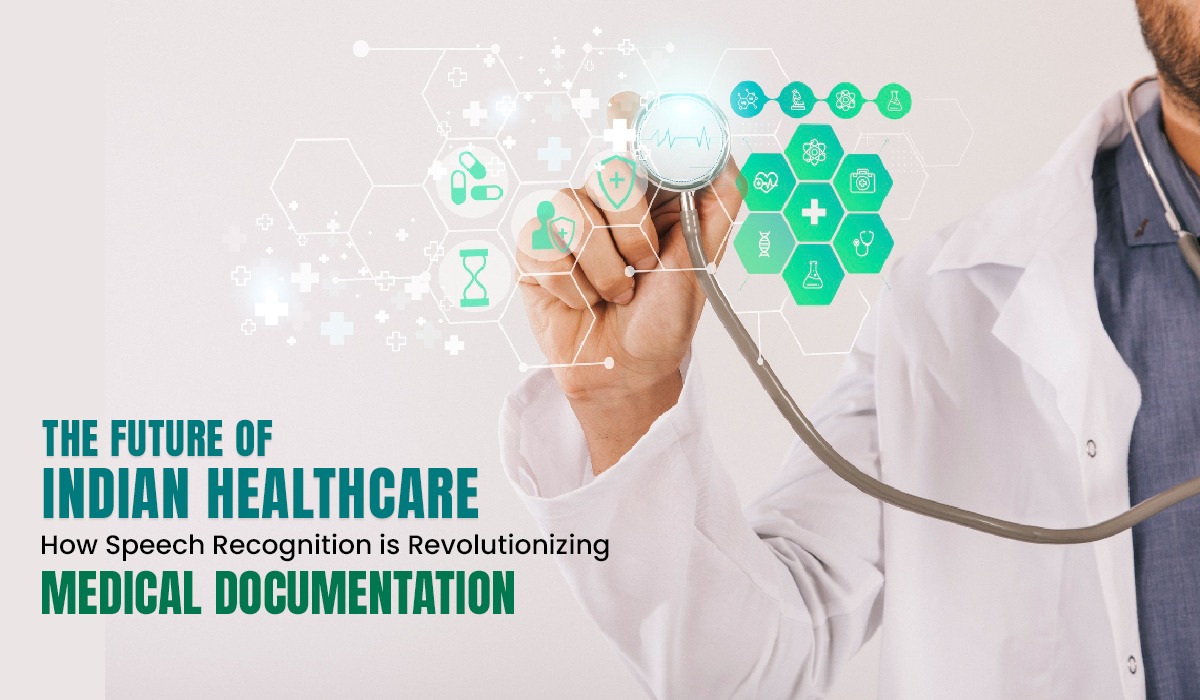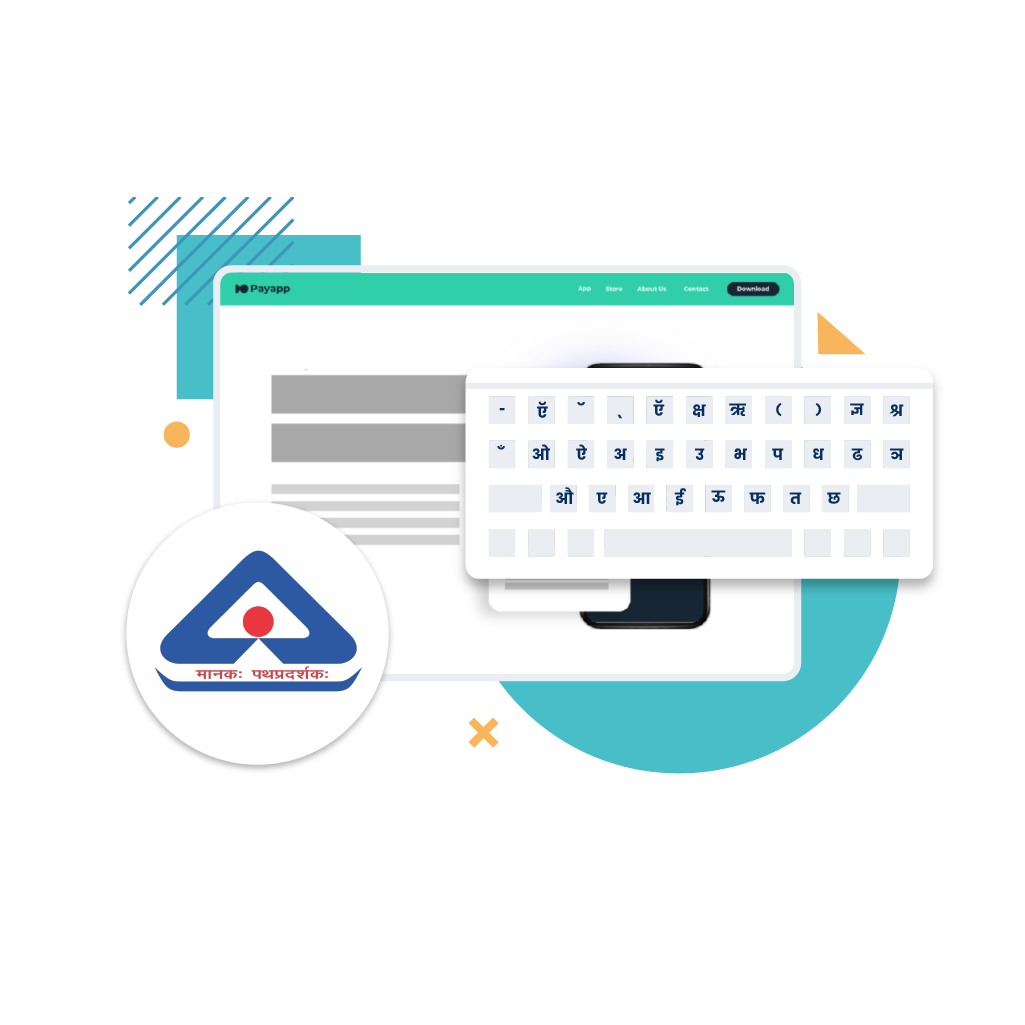India’s healthcare system is under immense pressure—rising patient loads, overworked clinicians, and a demand for more efficient care delivery. In this scenario, speech and voice recognition technology is stepping up as a revolutionary force, transforming how medical documentation and Electronic Health Records (EHR) are managed. For healthcare technology vendors and health IT professionals in India, adopting this innovation can no longer be considered as a choice—it’s a necessity to keep up with the pace of modern healthcare.
1. Enhancing EHR Efficiency: Real-Time Documentation in Indian Hospitals
Picture a bustling government hospital in Mumbai. Doctors are managing dozens of patients every day, typing up notes between consultations, trying to keep up with the demands of both clinical care and paperwork. Now imagine those doctors using speech recognition to dictate their observations directly into the EHR. Suddenly, data entry is instantaneous—no typing, no transcription delays.
This is the reality that speech recognition offers. By removing the need for manual input, clinicians can spend more time treating patients rather than managing documentation. The accuracy and speed of real-time data capture are game-changers, especially in fast-paced environments like India’s public hospitals.
For Indian healthcare technology vendors, integrating speech recognition into EHR systems provides a significant value proposition. Clinicians can dictate patient histories, treatment plans, or discharge summaries directly into the system—cutting documentation time in half and reducing the chances of data errors. AI-driven tools ensure the right information is captured, enhancing both productivity and the quality of patient care.
2. Tailoring Speech Recognition for India’s Diverse Medical Specialties
The diversity of medical specialties is vast—from neurology to orthopedics, each discipline comes with its own vocabulary and jargon. Speech recognition systems, such as the ones being developed by Indian tech startups, are now being trained to recognize and adapt to these specialized terms.
For example, an orthopedic surgeon in Delhi who frequently deals with terms like “anterior cruciate ligament” or “osteoporosis” can customize the system to pick up these complex phrases accurately. Similarly, a cardiologist in Chennai can configure the technology to seamlessly recognize words like “angioplasty” and “ventricular tachycardia.” This level of specialization ensures that documentation is not only faster but more precise, leading to better patient outcomes.
Indian healthcare vendors can take advantage of this customization feature to offer solutions that cater to specific specialities, helping their clients get the most out of their EHR systems.
3. Keeping Pace with Medical Jargon: Speech Recognition That Learns and Evolves
The Indian healthcare landscape is constantly evolving, with new treatments, terminologies, and procedures being introduced frequently. For example, as the world grappled with the COVID-19 pandemic, terms like “cytokine storm” and “RT-PCR test” became commonplace in medical discussions. Speech recognition technology, driven by machine learning (ML) and natural language processing (NLP), can stay up to date with these evolving medical terms.
In India, where medical terminology is often a mix of English and local languages, the ability to update systems with new terms or modify existing ones is essential. Indian hospitals and clinics need tools that can adapt in real time, ensuring that the latest developments in medicine are captured and documented accurately.
For instance, in a hospital in Tamil Nadu, a doctor might say, “The patient has hypertension, and we need to monitor their இரத்த அழுத்தம் (blood pressure) closely.” During the consultation, the doctor seamlessly switches between English and Tamil to explain medical conditions in a way the patient understands. A robust speech recognition system should capture both “hypertension” and “உயர் இரத்த அழுத்தம்” accurately, ensuring the EHR reflects the conversation in real-time without missing any key details.
Similarly, in a hospital in Uttar Pradesh, a doctor might say, “The patient is experiencing cardiac arrhythmia, and we need to focus on their हृदय गति (heart rate).” The system should easily adapt to this mix of English and Hindi, ensuring the medical records are fully aligned with the doctor’s spoken language, even as local language terms are incorporated.
4. Competitive Edge for Vendors: Why Voice Recognition is a Must-Have in Healthcare Solutions
Digitisation is on the surge, especially in Healthcare with initiatives like Ayushman Bharat Digital Mission (ABDM) aiming to create a seamless online platform for patient data. Healthcare technology vendors in India must stay ahead by offering advanced solutions like speech recognition to remain competitive.
Consider a private hospital chain in Bengaluru that implements voice recognition into its medical documentation system. Doctors now spend significantly less time on administrative tasks, improving their work-life balance. Patients benefit from quicker consultations, as doctors can focus more on their needs. The hospital sees a reduction in errors and an overall boost in efficiency. This leads to higher patient satisfaction, and the hospital’s reputation grows as a result.
For vendors, integrating speech recognition offers multiple advantages:
- Faster documentation means more efficient workflows.
- Higher adoption rates among clinicians who prefer speaking to typing.
- Staying relevant in a market where digitization is rapidly becoming the norm.
- AI-powered insights from voice data can lead to better clinical outcomes.
5. AI/ML and Speech Recognition: The Intelligence Behind the Technology
In Indian hospitals, where the pace can be intense and doctors are often working in high-pressure environments, speech recognition must be more than just accurate—it must be intelligent. AI and machine learning are the key drivers behind this intelligence.
For instance, a doctor at a multi-specialty hospital in Hyderabad speaks quickly, using a blend of English and regional language Telugu. The speech recognition system, powered by AI, learns from every interaction, improving its ability to understand and transcribe even the most complex medical terms. It also adapts to accents and dialects, ensuring that no information is lost.
AI doesn’t just improve transcription accuracy. It also helps predict potential errors, correcting them before they even happen. For example, if the system hears “diabetic ketoacidosis” but recognizes from context that the doctor is discussing hypertension, it can prompt the user to review the transcription. This level of intelligence is crucial in Indian healthcare, where multilingual environments and diverse medical conditions are the norm.
How Reverie’s Speech-to-Text (STT) Technology Can Elevate Indian Healthcare
As India’s leading provider of language localization solutions, Reverie’s Speech-to-Text (STT) technology offers a unique advantage to the Indian healthcare sector. Reverie’s STT supports 12 Indian official languages, making it the perfect fit for India’s multilingual medical landscape.
For instance, take a hospital in Kerala where patients prefer Malayalam, Reverie’s STT lets clinicians dictate notes in their preferred language, while real-time transcription of patient feedback ensures effective communication and accurate documentation. This integration helps maintain crucial medical information without loss in translation.
Furthermore, Reverie’s STT can help bridge the language gap between patients and healthcare providers. For example, a patient in Bihar may speak Bhojpuri, while the doctor primarily speaks Hindi or English. Reverie’s automated speech recognition (ASR) can transcribe the patient’s speech into the doctor’s preferred language, fostering better understanding and ensuring accurate medical records.
By implementing Reverie’s STT technology, Indian healthcare providers can:
- Serve patients in their native languages, ensuring inclusivity.
- Streamline EHR updates, making documentation faster and error-free.
- Enhance patient-doctor communication, leading to better healthcare outcomes.
The Future of Indian Healthcare is Voice-Driven
India’s healthcare system is at a critical juncture, where digital transformation has become an essential, not optional, advancement. Speech recognition technology is at the forefront of this change, enabling faster, more accurate documentation and helping clinicians focus on what matters most: patient care.
For healthcare vendors and IT professionals, integrating this technology into existing solutions is essential to stay competitive in the Indian market. With the ability to customize for specialties, adapt to evolving medical language, and offer AI-driven accuracy, speech recognition is not just the future of healthcare—it’s the present.
With Reverie’s Speech-to-Text solution, Indian healthcare providers can also offer multilingual support, ensuring language is never a barrier in delivering quality healthcare. Whether you’re a technology vendor looking to innovate or a hospital aiming to improve patient care, now is the time to embrace this transformation.


